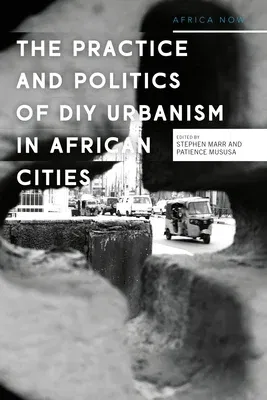Stephen Marr
(Author)DIY Urbanism in Africa: Politics and PracticePaperback, 30 November 2023

Temporarily out of stock
Free Delivery
Cash on Delivery
15 Days
Free Returns
Secure Checkout

Part of Series
Africa Now
Print Length
256 pages
Language
English
Publisher
Zed Books
Date Published
30 Nov 2023
ISBN-10
1786999021
ISBN-13
9781786999023
Description
Product Details
Authors:
Book Format:
Paperback
Country of Origin:
US
Date Published:
30 November 2023
ISBN-10:
1786999021
ISBN-13:
9781786999023
Language:
English
Location:
New York
Pages:
256
Publisher:
Series: